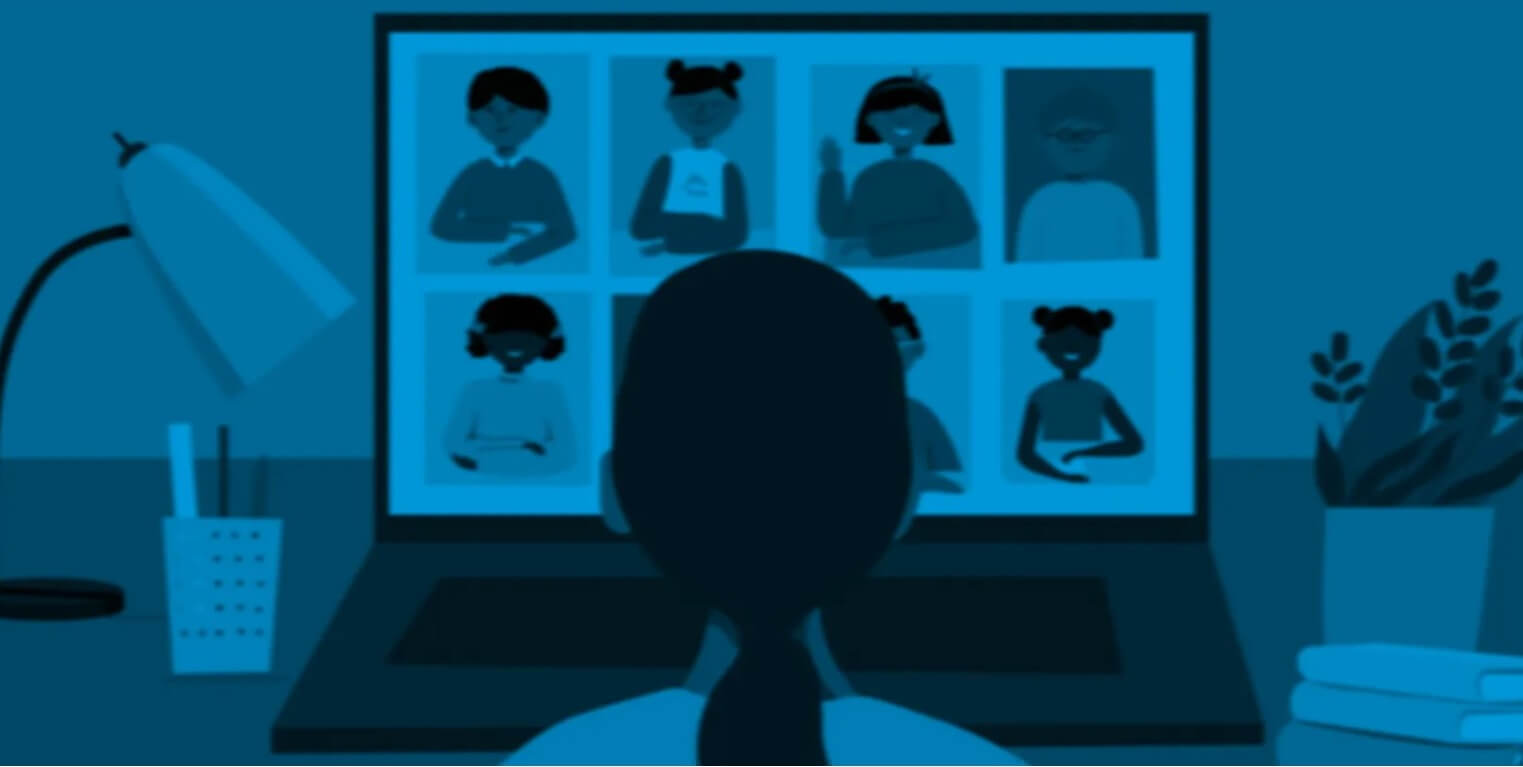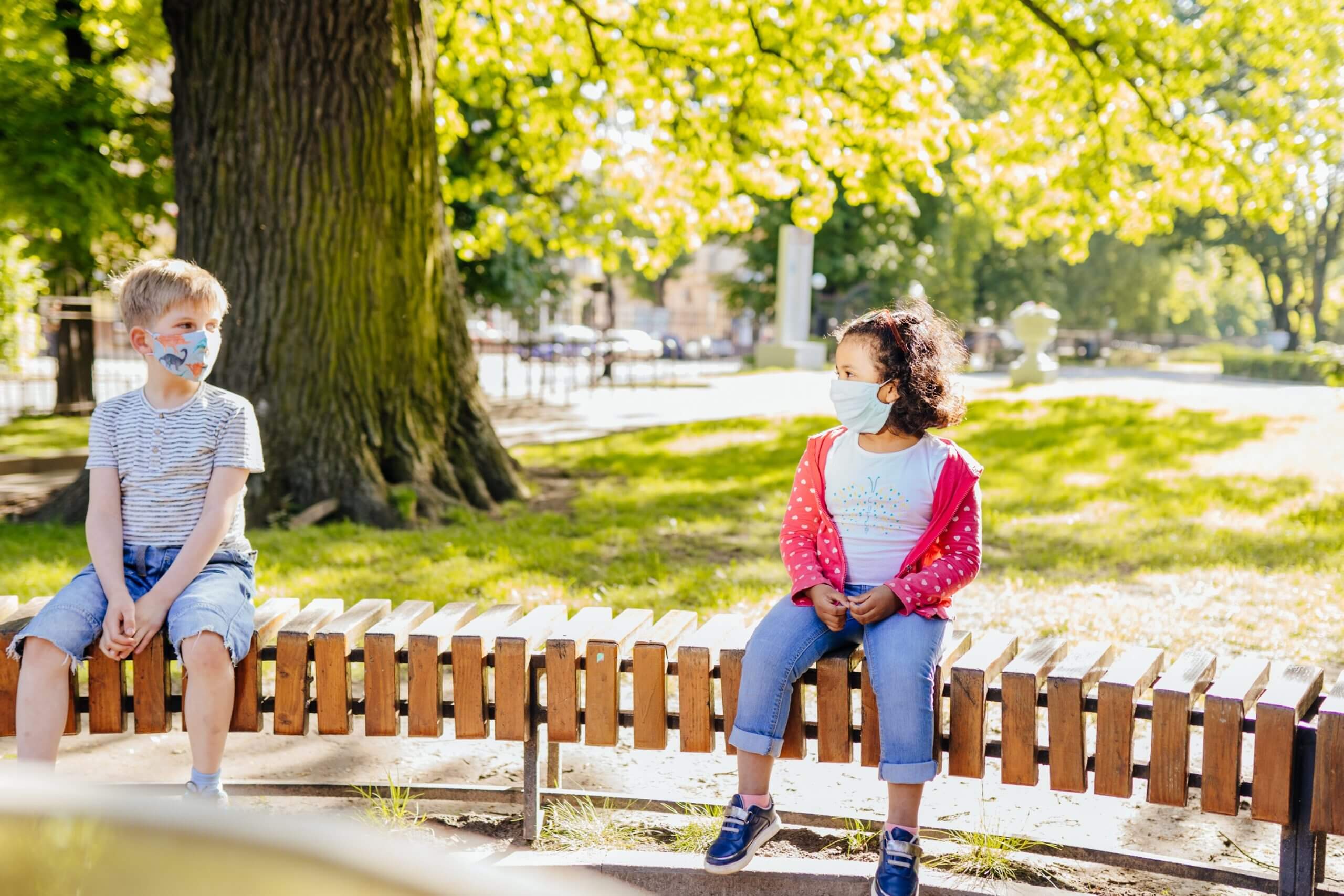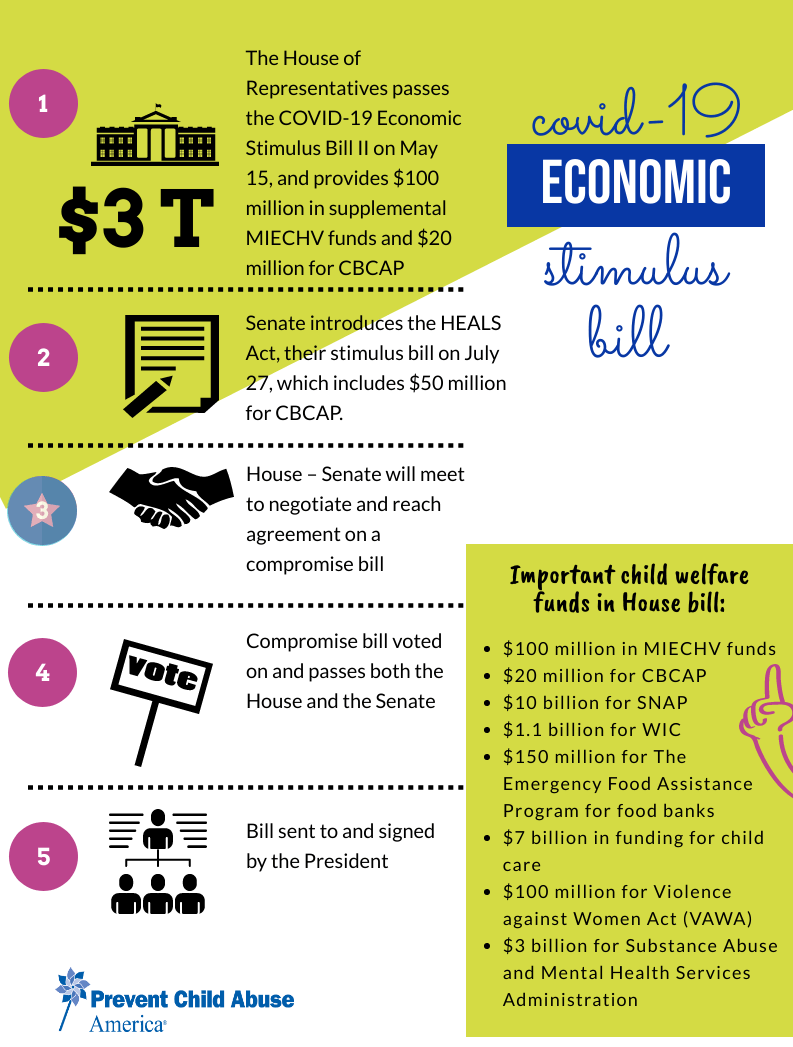Coronavirus Tips & Resources for Parents, Children, Educators & Others
Tips for Staying Connected
Tips for Staying Active & Engaged as a Family
Tips to Manage Stress & Anxiety
Resources for Families About COVID-19 Vaccines
Additional Resources for Parents, Children, Educators, Home Visitors & Others
Tips for Staying Connected
For our collective health and well-being, we must adhere to the requirements of social distancing. Physical distance, however, does not mean we need to remain socially disconnected or isolated. In fact, individuals, families, and communities can maintain the one thing we all need right now…social connection! Here are some clear, concrete tips for physically distancing while staying emotionally and socially connected:
Connect with family—right now is a great time to connect with family members near and far.
- Call/Skype/FaceTime/Zoom with family members
- Look at photo albums and discuss family heritage
- Create a family tree
- Write letters to/create cards for relatives (Perhaps an overdue thank you note for that really nifty gift you received?)
Connect with friends and neighbors—our social circles often serve as our greatest system of support, and there’s plenty to do in lieu of play dates, shared meals, and group gatherings.
- Go outside and greet and talk to neighbors and passersby from a safe distance
- Host a virtual meal
- Attend a virtual concert (“cloud clubbing”), church service, or exercise or yoga class
- Play an online game together
Connect with culture—with many schools closed and parents working from home, this is a great time for you and your children to connect with your culture, as well as cultural institutions.
- Read books about your culture
- Cook a meal together that reflects your cultural heritage
- Virtually visit more than 1,200 museums around the world via Google Arts & Culture
Connect with yourself—confronted with the constant barrage of information, uncertainty, and day-to-day realities of caring for children, family, and loved ones, it is critical to find ways to connect with yourself.
- Meditate or do yoga
- Journal or read
- Exercise
- Take a bath
Tips for Staying Active & Engaged as a Family
With the cancellation of play dates, birthday parties, and sleep overs/unders, your household calendar is likely wide open—this is a great time to do the following as a family:
- Play card and board games
- Make art or do crafts together
- Cook and bake together—talk about math as you prepare the recipe
- Build forts, design a marble run, or devise another fun STEM project
- Sort through bookshelves, revisit favorite titles and make a pile to donate
- Change family picture frames and revisit memories as you change photos
- Make a photo book together
- Perform a readers theater together—make up a play or production
- Sing, play piano or other instruments
- Make puppets and put on a puppet show
- Have a dance party, do fitness activities together, and play in the yard as a family
- Write letters or make cards for a local senior center, the RFPD, or RFFD
- Do puzzles—make up number puzzles or riddles
- Write stories and poetry and read them aloud (lots of encouraging applause, please)
- Download and complete our Pinwheels for Prevention coloring sheet
- Establish routines—it is more important now than ever to create a sense of structure at home with device-free meal times, physical movement, and a balance between academics/work and enjoyable activities that can reduce stress, as well as time provide opportunities to connect with family and friends. Also, eating healthy meals, exercising, and getting adequate sleep are essential to physical and emotional health.
Tips to Manage Stress & Anxiety
Common Sense Media has an abundance of resources for de-stressing, and the Center for Disease Control and Prevention (CDC) suggests numerous ways to manage stress and anxiety. Knowing the facts and the actual risks can help reduce stress in yourself and others. Take time to have conversations with your kids about their questions, concerns, or fears. Follow healthcare guidelines to model preventative care, and follow these tips and strategies to help structure your day:
Temper your expectations, and be kind to yourself—Remember, most of us were not prepared for this. Anxiety, fear, worry, and grief—these are all NORMAL reactions to abnormal circumstances. Laundry piles, dirty dishes, messy rooms—do what you can. And while we always suggest monitoring the use of children’s screen time, both how much and what they are watching, this may be a time where children have more screen time than they are accustomed to. Just make sure that your children are practicing safe online behavior. Here are some tips.
Embrace a rigid state of flexibility—Most children of all ages thrive when they have predictable routines. If your children are pre-school age or older, have them participate in the development of a daily schedule. When (not “if”) the schedule gets derailed, see Tip 1 above!
Find ways to stay informed—There is a constant barrage of information regarding COVID-19, and it is challenging to know what to think. Find trusted sources and limit your exposure to this material. Social media can be a major source of social support, but can also create feelings of fear, panic, and, for some, feelings of inadequacy. If seeing pictures of well-organized kitchen tables, Pinterest boards of fun activities, from those who you perceive “have it all put together,” are causing you distress, reconsider your relationship with social media for the time being. Talk with people you trust about your concerns about how you are feeling.
See the world through your children’s eyes—Do you remember what it was like to be a kid? Do you remember how boring it was to watch the news? Do you remember how cool it was when your parents did spontaneous things with you?
- Roast marshmallows on the bbq
- Go “camping” in the living room
- Make a pillow fort
- Create a nature scavenger hunt
Learning can be fun—With uncertainty about the return to school, many parents are fretting about the potential loss of academics for their children. Fortunately, daily activities carry immense opportunity for learning:
- Cooking teaches science and math
- Yard work teaches about nature and can inspire creative art projects
- Reading together enriches vocabulary and listening skills
Take care of your body—Take deep breaths, stretch, or meditate. Try to eat healthy, well-balanced meals, exercise regularly, get plenty of sleep, and avoid alcohol and drugs. Make time to unwind. Try to do some other activities you enjoy. Call your healthcare provider if stress gets in the way of your daily activities for several days in a row.
Resources for Families About COVID-19 Vaccines
Healthy Families America, our signature home visiting program, has developed a resource page on talking to families about COVID-19 and COVID-19 vaccines.
Resources related to COVID vaccine misinformation:
- Addressing COVID Vaccine Misinformation (CDC)
- Finding Credible Vaccine Information (CDC)
- Key Facts about COVID-19 Vaccines (CDC)
- Vaccine Misinformation Management Field Guide (UNICEF)
Support families in evaluating the accuracy of health information:
Uplift organizations sharing accurate vaccine information:
- The Conversation / La Conversacion features health care workers of color discussing COVID-19 and vaccinations.
- Latinos and Health Equity Bilingual Storytelling Campaign related to COVID-19 vaccination.
- Toolkit for Tribal Communities (CDC)
Additional Resources for Parents, Children, Educators, Home Visitors & Others
For parents—this section provides resources for parents for how to talk with children about COVID-19. These strategies emphasize reassurance of child fears and anxieties, modeling proper hygiene, establishing routines in the case of school closures, and monitoring media use:
- COVID-19 Parental Resource Kit: Ensuring Children and Young People’s Social, Emotional, and Mental Well-being (Centers for Disease Control and Prevention [CDC])
- Love in the Time of Coronavirus: A HOPE-informed Guide for Parents (HOPE [Healthy Outcomes from Positive Experiences])
- Parenting in a Pandemic: Tips to Keep the Calm at Home (Healthy Children/American Academy of Pediatrics)
- Helping Kids Adjust to Remote Learning During the COVID-19 Pandemic (UNICEF USA)
- Staying Emotionally Close in the Time of COVID-19 (Dr. Bruce Perry/The Trauma Therapist Podcast)
- Parents have a right to be stressed. But don’t take it out on your kids (CNN)
- HOPE, Engagement, and COVID-19 (HOPE [Healthy Outcomes from Positive Experiences])
- Tips for Families: Talking About the Coronavirus (Zero to Three)
- Talking to Kids About the Coronavirus (Child Mind Institute)
- Resources for Supporting Children’s Emotional Well-being during the COVID-19 Pandemic (Child Trends)
- Mental Health and Coping During COVID-19 (Centers for Disease Control and Prevention [CDC])
- Supporting and Reassuring Children around the World (in English, Spanish, Italian, French, Polish, and numerous other languages—Mindheart)
- Coronavirus and Parenting: What You Need to Know Now (NPR)
- How to Prepare for Extended School Closings—and Not Lose Your Mind (Upworthy)
- Parents Share Their Tiny Victories While Working From Home With Kids (New York Times)
- Handling Your Kid’s Disappointment When Everything Is Canceled (New York Times)
- Here’s How to Qualify for Paid Leave for Coronavirus (Forbes)
- How to Talk to Kids About Coronavirus (New York Times)
- What Parents Need to Know About Coronavirus (New York Times)
- How to Talk to Your Kids About Coronavirus (PBS Kids)
For children—this section provides age-appropriate resources for children (e.g., songs and videos) regarding proper hygiene, illness, and visits to medical professionals:
- Coping After a Disaster—Ready Wrigley Books (Centers for Disease Control and Prevention [CDC])
- Cómo sobrellevar los desastres o eventos traumáticos—Ready Wrigley Books (Centers for Disease Control and Prevention [CDC])
- Ready Wrigley Prepares for Flu Season (Centers for Disease Control and Prevention [CDC])
- LISTO CALIXTO se prepara para la temporada de influenza (Centers for Disease Control and Prevention [CDC])
- A Germ-fighting Superhero (Daniel Tiger’s Neighborhood/PBS Kids)
- Step-by-step Handwashing with Elmo (Sesame Street/PBS Kids)
For educators—this section provides resources for schools to address the instructional and IT needs of distance learning opportunities for students:
- COVID-19 Educator’s Guide (Michigan Department of Education and Michigan Department of Health and Human Services)
- Guidance for School Settings (Centers for Disease Control and Prevention [CDC])
- COVID-19: Preparing for Widespread Illness in Your School Community (National School Boards Association)
- Explore Distance Learning Resources for Schools Affected by COVID-19 (Google)
For home visitors:
- Home Visiting: A Lifeline during the Coronavirus Pandemic (Center for American Progress)
- COVID-19’s Early Impact on Home Visiting (Home Visiting Applied Research Collaborative [HARC])
- Healthy Families America website
For early childhood/child development professionals:
- What Is COVID-19? And How Does It Relate to Child Development? (Center on the Developing Child at Harvard University)
- COVID-19 Resources (Center on the Developing Child at Harvard University)
- Addressing Abuse and Neglect During COVID-19 Webinar Series (Zero to Three)
- Coronavirus Resources for Early Childhood Professionals (Zero to Three)
- New Webinars and Online Discussion for Human Services Organizations Addressing Coronavirus (Alliance for Strong Families & Communities)
- COVID-19 Resources (Office of Childcare, Administration for Children & Families)
For communities—this section provides resources and information regarding the disproportionate impact of COVID-19 on under-resourced communities and communities of color and ways in which communities can create “population-level” strategies to limit the contact and spread of COVID-19:
- COVID-19: Policies to Protect People and Communities (Urban Institute)
- Low-Income Communities Are Most at Risk from Coronavirus Outbreak (Spotlight on Poverty and Opportunity)
For businesses & employers—this section provides resources for business owners and employers on policies and practice for minimizing risk of COVID-19 in the workplace, organizational policies for emergency preparedness, and establishing policies for remote working:
- Guidance for Preparing Workplaces for Coronavirus (US Department of Labor)
- Keeping the Workplace Safe (Centers for Disease Control and Prevention [CDC])
For legislators:
For fundraisers and communications professionals:
For immigration advocates:
General:
- 2019 Novel Coronavirus: COVID-19 (American Academy of Pediatrics)
- COVID-19 Resource and Information Guide (National Alliance on Mental Health [NAMI])
- 8 Ways to Help Children and Adults Living with Violence (Futures Without Violence)
- COVID-19 Resources (Transform Research Center)
- On Grief and Finding Meaning (Brené Brown Podcast, with David Kessler)
- Promoting Family Resiliency (Parenting in Context Research Lab)
- COVID-19 Resources and Updates (National Council of Juvenile and Family Court Judges)





